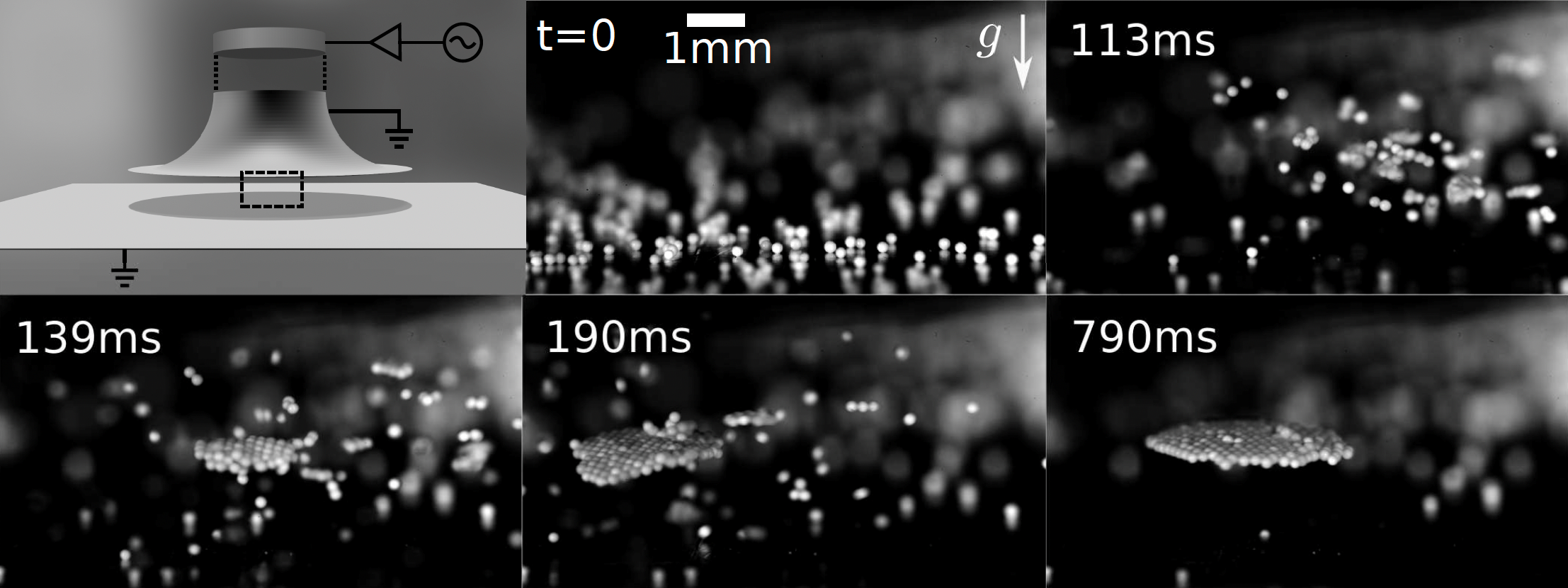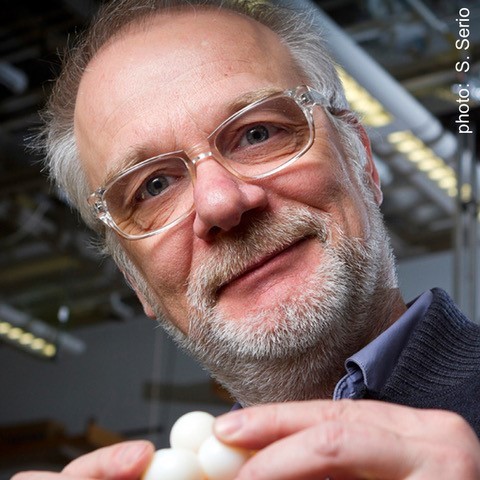Granular matter can serve as a prototype for exploring the rich physics of many-body systems driven far from equilibrium. This talk will outline a new direction for granular physics with macroscopic particles, where acoustic levitation compensates the forces due to gravity and eliminates frictional interactions with supporting surfaces in order to focus on particle interactions. Levitating small particles by intense ultrasound fields in air makes it possible to manipulate and control their positions and assemble them into larger aggregates. Furthermore, sound scattered off individual, levitated solid particles gives rise to controllable attractive forces with neighboring particles. The small air viscosity implies that a regime of complex, underdamped dynamics can be explored, where inertial effects are important, in contrast to typical colloids in a liquid, where inertia can be neglected. I will discuss some of the key concepts underlying acoustic levitation, and show how it can be used to measure the transfer of net charge between dielectric particles in individual collisions. I will then describe how detuning an acoustic cavity can introduce active fluctuations that control the assembly statistics of small levitated particles clusters, and give examples of how interactions between neighboring levitated objects can be controlled by their shape.

Heinrich Jaeger is the Sewell Avery Distinguished Service Professor of Physics at the University of Chicago. He received his Ph.D. in physics in 1987 from the University of Minnesota and has been on the faculty at U Chicago since 1991, directing the Chicago Materials Research Center from 2001 – 2006, and the James Franck Institute from 2007-2010. Jaeger’s current research focuses on self-assembled nanoparticle-based structures, on the rheology of concentrated particle suspensions, and on studies of the flow and jamming properties of dry granular materials.

 The College of Arts
The College of Arts